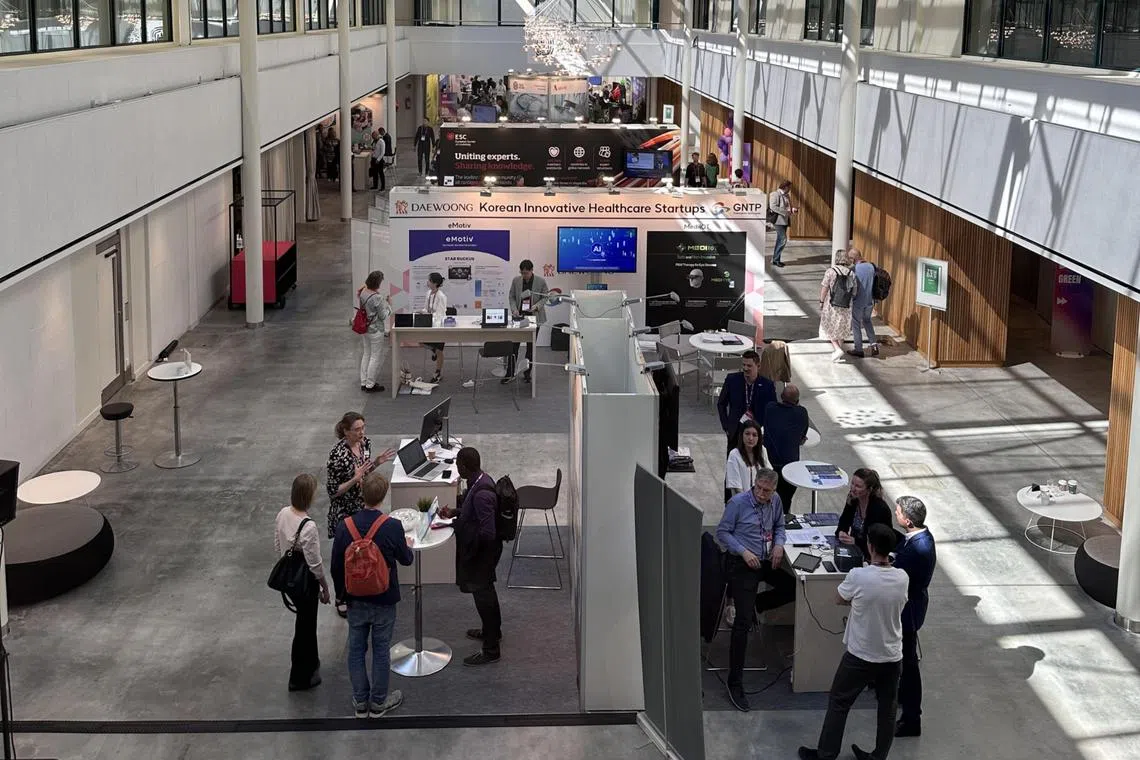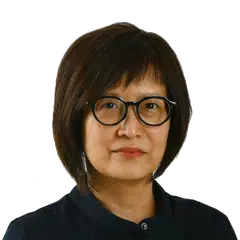Robots that tell you when to take your medicine: Home care made easier with Finnish innovations
Sign up now: Get ST's newsletters delivered to your inbox

The Radical Health Festival was held in Helsinki, Finland, for the first time in June this year.
ST PHOTO: JOYCE TEO
Follow topic:
HELSINKI - In Finland, some seniors have a small, automated medicine-dispensing device at home that makes sure they are taking the right dose of the right medication at the right time.
The medications are first packed in sachets and placed inside the Evondos devices by an employee from any home care organisation that helps to support elderly persons with their daily activities.
When it comes time to take the medications, the device will alert the elderly person. It can even call the elderly person on the mobile phone, if needed, said Mr Markus Makela, chief commercial officer of Evondos, which started in 2008 and now has more than 300 employees and more than 550 clients in Europe.
The device can be placed on the kitchen table, and it can alert the home care organisation if the elderly person is unable to take his medications, he said.
This was one of the Finnish tech solutions for ageing at a media showcase hosted by Healthtech Finland, the Finnish Health Technology Association, in Helsinki in June.
Health tech is one of the fastest-growing high-tech export sectors in Finland. In 2022, the value of its health technology exports rose to $2.74 billion, up about 6 per cent from the previous year.
The country is home to hundreds of social and healthcare technology companies, including those specialising in agetech solutions to help with active ageing, homecare and assisted living environments.
One of these, Awario, an artificial intelligence or AI-powered screening product by a company called Heart2Save, can help to detect atrial fibrillation – a heart condition that causes an irregular and often abnormally fast heart rate.
For instance, a home care organisation worker visiting a patient can place the small sensor connected to the Awario app on the patient’s chest. The sensor can generate an electrocardiogram, or ECG, reading within 30 seconds. Awario will then analyse the ECG reading and generate a report that doctors can monitor remotely.
A software application, Medixine, helps with the remote monitoring management of elderly patients living at home.
For instance, a doctor can send a patient diagnosed with chronic obstructive pulmonary disease home with a set of devices, including a pulse oximeter to measure blood oxygen levels, weighing scale and blood pressure cuff.
The patient can take his own measurements and update the platform in between hospital visits, said Medixine chief executive Lasse Rousi. If the data shows a worsening condition, healthcare professionals can be alerted to it remotely, he said.
Another company, Verso Vision, is using video analytics and AI to monitor patients at risk of falling in hospitals and care homes.
Verso Vision chief executive Katja Taalas said it acts as another pair of eyes for nurses.
The AI can automatically analyse visible human actions in a video signal, and send an alert to the nurse when a patient at risk of falls is about to get out of bed, for example.


